• Buhari Says Nigeria’s Diversity Is Strength, Tasks Incoming Govt On Inclusivity
• Kenyatta To Tinubu: Be A Rallying Point For National Unity
• Akinwumi Seeks Economic Policies That’ll Move Nation Forward
• ‘Incoming President Must Rise Above Party Lines, Remove Fuel Subsidy’
• India Sends Special Delegation For Inauguration
President-elect, Asiwaju Bola Ahmed Tinubu yesterday, underscored the significance of democracy, stating that it remained the only means by which Nigeria’s sustainable development could be driven.
The President-elect, whose address was delivered by Vice President-elect, Kashim Shettima, called on citizens to join hands with the incoming administration to usher in a better Nigeria.
According to a statement by Tunde Rahman of the office of the President-elect, Tinubu restated the commitment of the incoming government to democratic ideals, adding, “Democracy is more than a system of governance; it is the very lifeblood that empowers a nation to flourish and thrive. We stand at the precipice of a new era, where the ideals of democracy will guide our path towards sustainable development.”
The incoming president also embraced his African identity, reaffirming his love for the continent, just as he recognised the collective efforts of Nigerians and Africans in shaping their democratic political cultures and institutions, tailored to the unique conditions and challenges faced by their societies.
He said: “Democracy, my fellow countrymen, is not only a political system; it is a way of life. It embodies a distinctive code of thought and conduct, demanding the utmost integrity and self-improvement from leaders.”
Continuing, the President-elect, while noting that democracy guarantees freedom, stated that its survival hinges on responsible and measured use of that freedom, adding that it empowers the majority to express their will while safeguarding the fundamental interests of the minority.
“Our democracy is not an abstract ideal; it is a practical vessel that will propel our nation to new heights in every facet of our collective existence,” Tinubu stated.
Drawing insights from Nigeria’s national experience, he acknowledged the merits of democracy even in its imperfect manifestations, stressing that it surpasses the most perfect dictatorship in terms of justice, humanity, and productivity.
He stressed the importance of fostering open forums for discussion and debate, where the best ideas and policies can enter the national discourse and capture the imagination of the people.
He pledged to utilise democratic institutions not only to safeguard political and civil rights but also to drive other economic reforms that engender broad-based prosperity, create employment opportunities, and unlock the nation’s untapped potential.
“Today, I stand before you, ready to dedicate my entire being to the service of our great nation and the African continent,” the President-elect said.
IN his remarks, President Muhammadu Buhari noted that the inauguration lecture took participants on a journey of introspection on the imperatives of democratic governance and nation-building, highlighting challenges that confront the socio-political fabrics of Nigeria.
“We have learnt that democracy is not just a system of governance. It is a way of life. True democracy is when the voice of the people is heard. Our nation’s progress rests on inclusivity, unity and not leaving any citizen behind and by ensuring every citizen enjoy the dividends of good governance.
“We must heed the lessons of this lecture and translate them into action. We must fight against corruption in all its form. We must remain united. Our diversity is our strength. We can overcome our differences and forge a common cause towards progress.”
DELIVERING his keynote address, former Kenyan President, Uhuru Kenyatta appealed to the incoming President, Tinubu, to unite the country irrespective of ethnic, political and religious cleavages that may exist.
He noted that once sworn-in as the President, Asiwaju Bola Tinubu becomes father to all and as such, must use his administration as a uniting force.
The former Kenyan leader said that with the contest now over, the hard work of building a prosperous and unified Nigeria begins.
“As president, you must learn very quickly to lead those who love you and those who don’t with equal passion and commitment because now, you are the father of all,” Kenyatta said.
MEANWHILE, President of African Development Bank (AfDB), Dr. Akinwumi Adesina, has called on the incoming President, Asiwaju Tinubu, to rise above party lines and other affiliations and forge economic policies with compelling force to move the nation forward.
Adesina, in his speech, noted that Nigerians would be looking up to Tinubu to solve the many challenges, including insecurity, that have conspired to weigh down the country, and divide the people.
He said Nigerians specifically desire a new administration that will guarantee security, peace, and stability and spark a new wave of prosperity that would unite the fractious nation and improve the economy.
“The starting point must be macroeconomic and fiscal stability. Unless the economy is revived and fiscal challenges addressed boldly, resources to develop will not be there. No bird can fly if its wings are tied,” he noted.
Nigeria currently faces huge fiscal deficits, estimated at six per cent of GDP. This has been due to huge federal and state government expenditures, lower receipts due to dwindling revenues from export of crude oil, vandalism of pipelines and illegal bunkering of crude oil.
According to Nigeria’s Debt Management Office, Nigeria now spends 96 per cent of its revenue servicing debt, with the debt-to-revenue ratio rising from 83.2 percent in 2021 to 96.3 percent by 2022.
Akinwumi continues: “Some will argue that the debt to GDP ratio at 34 per cent is still low compared to other countries in Africa, which is correct; but no one pays their debt using GDP. Debt is paid using revenue, and Nigeria’s revenues have been declining. Nigeria earns revenue now to service debt – not to grow.
“Fuel subsidies are killing the Nigerian economy, costing Nigeria $10 billion alone in 2022. That means Nigeria is borrowing what it does not have to if it simply eliminates the subsidies and uses the resources well for its national development.”
The AfDB president urged the Tinubu administration to rather extend support to private sector refineries as well as modular refineries to allow for efficiency and competitiveness to drive down fuel pump prices.
He expressed confidence that the newly commissioned Dangote Refinery by President Buhari – the largest single train petroleum refinery in the world, as well as its Petrochemical Complex – will revolutionize Nigeria’s economy.
He further tasked the incoming administration to urgently look at the cost of governance, stating that the “cost of governance in Nigeria is way too high and should be drastically reduced to free up more resources for development. Nigeria is spending very little on development. Today, Nigeria is ranked among countries with the lowest human development index in the world, with a rank of 167 among 174 countries globally, according to the World Bank 2022 Public Expenditure Review report.
“To meet Nigeria’s massive infrastructure needs, according to the report, will require $3 trillion by 2050. According to the report, at the current rate, it would take Nigeria 300 years to provide its minimum level of infrastructure needed for development. All living Nigerians today, and many generations to come, will be long gone by then!
“We must change this. Nigeria must rely more on the private sector for infrastructure development to reduce fiscal burdens on the government.”
However, simply raising taxes is not enough, as many question the value of paying taxes, hence the high level of tax avoidance. Many citizens provide their own electricity, sink boreholes to get access to water, and repair roads in their towns and neighborhoods.
“These are essentially high implicit taxes. Nigerians therefore pay the highest ‘implicit tax rates’ in the world. Governments need to assure effective social contracts by delivering quality public services. It is not the amount collected, it is how it is spent, and what is delivered. Nations that grow better run effective governments that assure social contracts with their citizens.
“We must re-balance the structure and performance of the economy. A very common refrain in Nigeria, with every successive government, is “we need to diversify the economy.”
He expressed readiness of AfDB to help to expand the country’s human capital of every state, adding, “We are equally ready to help revamp agricultural lending institutions to help modernise the food and agriculture sector.
“The best asset of Nigeria is not its natural resources; Nigeria’s best asset is its human capital. We must invest heavily in human capital to build up the skills Nigeria needs to be globally competitive, in a rapidly digitized global economy.
The well-attended lecture had in attendance the National Chairman of the ruling All Progressives Congress (APC), Senator Abdullahi Adamu; Deputy Speaker, House of Representatives, Idris Wase; Secretary to the Government of Federation, Boss Mustapha; His Eminence, Sultan Mohammed Abubakar Sa’ad of Sokoto; Ooni of Ife, Oba Enitan Ogunwusi; Most Rev. Bishop Mathew Kukah, and Deputy Secretary-General of United Nations, Amina Mohammed.
Ahead of tomorrow’s inauguration ceremony, the Indian government has sent its Defence Minister, Mr. Rajnath Singh, as a Special Envoy of the Prime Minister to attend the swearing-in ceremony of the President-elect, Bola Tinubu.
In a statement by the Indian Embassy in Nigeria, yesterday, India stated that Mr. Singh would arrive in Abuja, today for the occasion.
“The visit of Mr. Rajnath Singh reflects the growing bilateral relations between India and Nigeria and signifies India’s commitment to strengthening ties with Nigeria.
“Mr. Singh is accompanied by a high-level delegation comprising senior officials from the Ministry of Defence and Ministry of External Affairs of India. He is the most senior Minister in the Government of India.
“Sending such a senior Minister to Nigeria as a Special Envoy of the Prime Minister of India reflects India’s commitment to the deep-rooted bilateral relations with Nigeria,” the statement added.
The Guardian


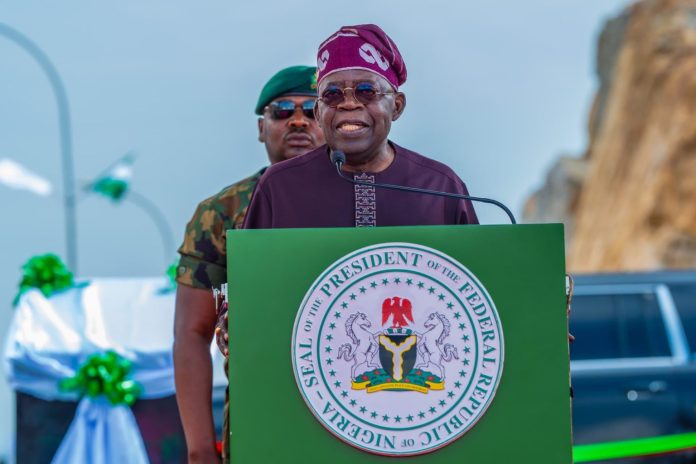
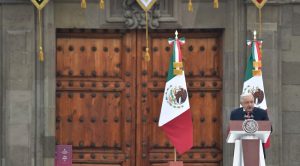

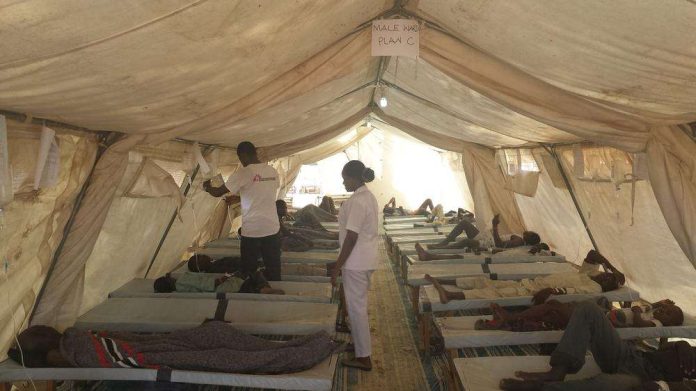






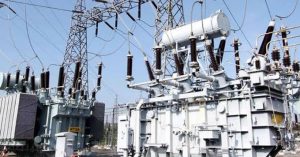
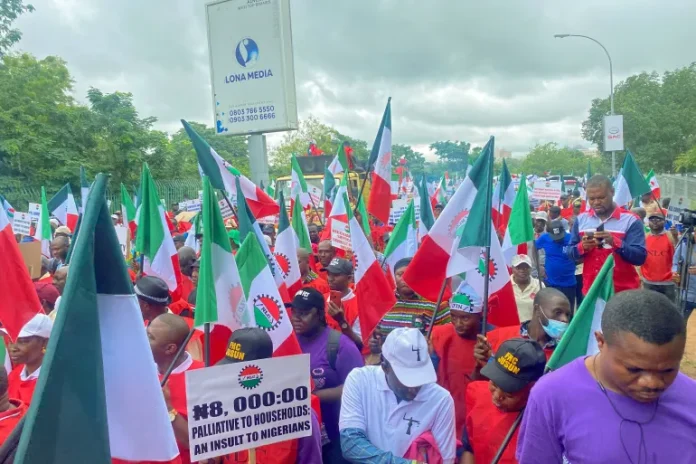

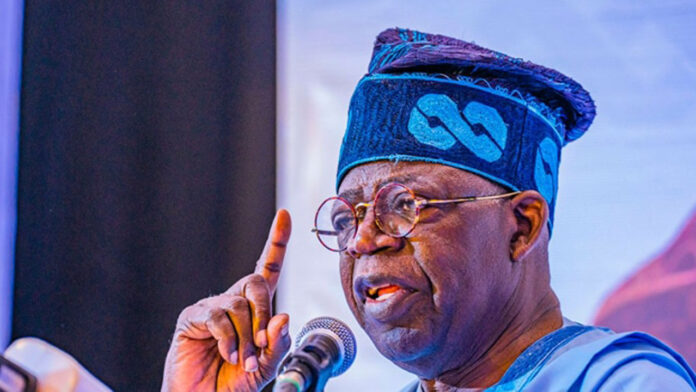

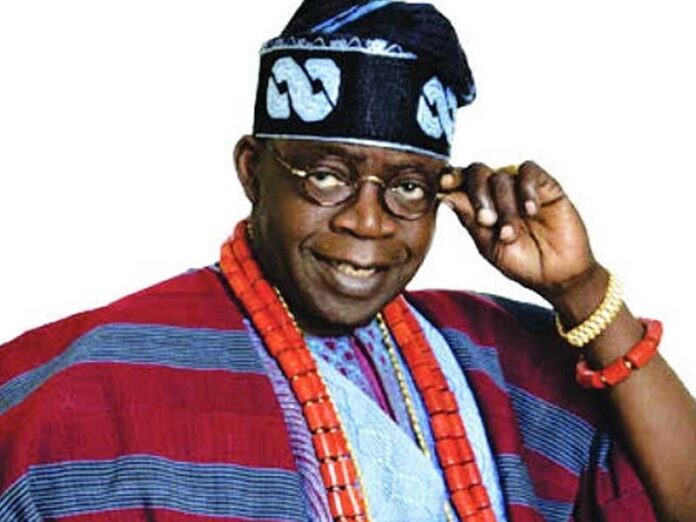

 Asiwaju Bola Tinubu will today make history as he will be sworn-in as the 16th president of Nigeria in Abuja. In this report, Adedayo Akinwale takes another look at Tinubu’s 80-page Action Plan to transform the nation.
Asiwaju Bola Tinubu will today make history as he will be sworn-in as the 16th president of Nigeria in Abuja. In this report, Adedayo Akinwale takes another look at Tinubu’s 80-page Action Plan to transform the nation.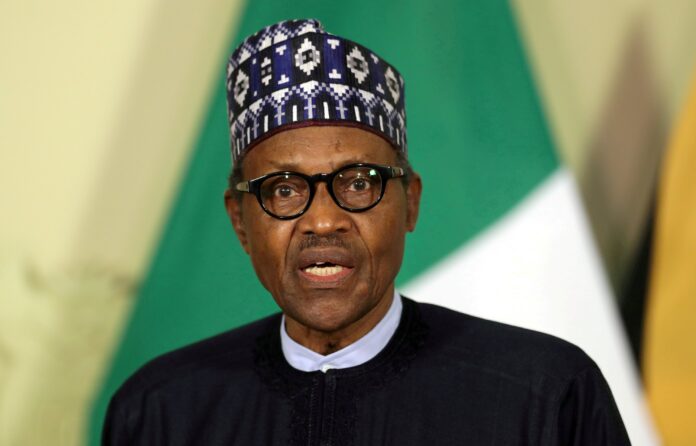
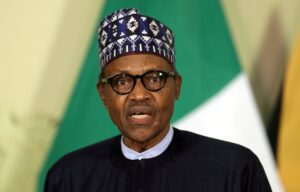 President Muhammadu Buhari.
President Muhammadu Buhari.